
Bloat in Dogs: Causes, Diagnosis & Treatments
If your dog is showing signs of bloating, it could signify a serious health issue. Learn more about bloat in dogs -- including the causes, diagnosis, and treatment.
While treatable, bloating can sometimes be life-threatening if not caught in time, which is why it’s good to know the signs. For your benefit, Finn has put together a guide on bloat, also known as Gastric Dilatation-Volvulus, or GDV.
Severe bloat is considered a medical and surgical emergency. If you fear that your dog is experiencing bloat, contact your veterinarian immediately, and if they’re not available, you need to go to the emergency vet.
Let’s learn more about bloating in dogs and what you can do to help.
What Is Bloat?
The scientific term for bloat is gastric dilatation-volvulus, and it can be a serious condition and even fatal if left ignored. GDV is when a dog's stomach fills with gas, food, or fluid and subsequently twists.
The severity of bloating depends on your dog’s body. Simple bloat, also known as stomach distension, typically only lasts a few hours and can sometimes resolve itself. However, stomach distension can lead to a more severe bloat, categorized as GDV. When the bloat progresses to GDV, the stomach of your pup actually twists, flips, and turns on its axis. This is the life-threatening component of GDV.
The action of severe bloat and your pup’s stomach flipping onto its axis results in pressure on your dog’s surrounding organs. As the stomach fills with air, blood can no longer travel from their hind legs or abdomen back to their heart. Blood ends up pooling at the back of your pup’s body, which ultimately sends them into a state of shock, which can cause death.
What Causes Bloat?
So what are the causes of this life-threatening condition? Knowing the causes of bloat can actually prevent your pet from experiencing it. While specific causes are unknown, here are a handful of risk factors.
-
Age - While bloat can occur at any age, it’s generally seen in middle-aged dogs. As your dog ages, the risk of GDV increases.
-
Eating rapidly or overeating - Fast eating dogs are more likely to have bloat than dogs that eat their meals more slowly. Drinking a large quantity of water in a short period can also lead to bloating.
-
Genetics and DNA - Certain breeds are more prone to GDV than others — specifically, large, deep-chested breeds like great Danes, poodles, and St. Bernards. Family history can also play a role in your dog’s chance of experiencing this condition.
-
Dietary Ingredients - According to the American Kennel Club, foods containing soybean meal or fats in the first four ingredients increase the risk of bloating.
What Are the Signs of Bloat?
Make sure you’re looking for the early signs of bloat in your pooch. The most obvious sign of bloat in canines is retching, which is when your pup looks like they are trying to vomit, but nothing comes out. Look out for the enlargement of your dog’s abdomen as well. That could be a sign that your pup’s stomach is filling up with air.
Salivation, restlessness, and whimpering when their stomach is touched are also signs of progressed bloat and possibly GDV. Panting, pacing, and excessive drooling can occur as well. Your doggo may also exhibit pale gums.
If you notice any of these signs, take your dog to the vet right away. A dog with untreated GDV can go into shock within two hours.
How Is Bloat Diagnosed?
As previously mentioned, GDV should be diagnosed and treated as soon as possible to prevent permanent damage. Specialists can typically detect bloat by examining your pet and their behavior. Tests are also done to confirm diagnoses, like blood tests and abdominal x-rays.
X-rays can detect how serious your dog’s bloat is and if it’s progressed to GDV. If the bloat has already progressed to GDV, the stomach appears very distended and has what looks like a bubble on top of an already swollen stomach.
Treatment for Dog Bloat
Treatment for bloat depends on what stage of bloat the dog is in, but the vet will usually start by making sure your dog is not in shock. Once the shock is treated and your dog is stable, they’ll prep your pup for surgery. There are generally two parts to this type of surgery: deflation of the abdomen and repositioning of the stomach, and then attaching the stomach to the abdominal wall to help keep it in place and prevent bloat in the future.
What Breeds Are at Risk for Bloat?
Giant-breed dogs with deep, wide chests are more prone to GDV than smaller dog breeds. High-risk breeds include great Danes, standard poodles, Irish setters, Irish wolfhounds, Akitas, German shepherds, Weimaraners, Saint Bernards, Gordon setters, Doberman pinschers, and boxers.
Prevention of Bloat
While GDV and bloat aren’t always preventable, you can take measures to try and help lower the risk.
Healthy and Hearty Diet
Supply your dog with a healthy diet (and non-fatty, whole treats). Make sure your dog is eating two hearty meals per day instead of one. Avoid having your pup eat from elevated food bowls and attempt to slow down their eating by investing in an interactive, slow-feeder bowl. This will help your doggo pace themselves as they eat.
Supplements
Take supplements into consideration when planning out your pup’s weekly meals.
Finn’s Digestive Probiotics is a pre and probiotic blend that supports healthy poops, digestion, and ultimately, a more comfortable doggo.
Our Starter Bundle is a great option as well, as it includes the digestive probiotic, a multivitamin, and a calming aid. These products will work together to support digestion and gut health, bolster immunity, nurture joints, support mobility, and help your pup relax.
Preventative Surgery
Preventative surgery is an option for breeds that are at higher risk. This preventive gastropexy is done during your pet’s spay or neuter procedure, and it can be performed on both males and females.
A gastropexy will help stop the stomach from twisting 95 percent of the time if bloat occurs, which is pretty high! Many owners of large breed dogs will opt to have this surgery done when their puppy is young.
Prognosis
Untreated GDV is fatal. The risk for complications increases as illness severity and time increases. If your dog is showing clinical signs for more than a few hours, experiences a cardiac arrhythmia before surgery, and requires the removal of a portion of the stomach or spleen, they will likely not make it through.
On a brighter note, up to 80 percent of dogs that receive prompt treatment do have good chances. Dogs that survive GDV will sometimes need blood transfusions and additional specialized care for the remainder of their lifetime, but their lifespan should remain unchanged.
Summary
To conclude, let’s recap what bloat is and how you can prevent your dog from experiencing it. To put it simply, bloat is the swelling of your dog’s abdomen. Severe bloat is called gastric dilatation-volvulus and can be life-threatening.
Bloat results from age, eating too quickly or over-eating, being a part of a large-breed group, certain dietary ingredients, and drinking large quantities of water or other fluids in a short period of time.
Signs of bloat are a distended stomach, retching, salivation, restlessness, discomfort, panting, pacing, agitation, excessive drooling, and pale gums. Once these signs are observed, your dog should be taken to an emergency vet as soon as possible so they can diagnose via x-rays and blood tests, and begin treatment as soon as possible.
Now that you know what bloat looks like and why it happens, pay close attention! Luckily, a large percentage of dogs that are treated do survive.
Sources:
Gastric Dilatation-Volvulus (Bloat) | Veterinary Medical Center of CNY
Bloat (or GDV) in Dogs — What It Is and How it's Treated | American Kennel Club
Dog Breeds With High Risk of Bloat | Animal Emergency Hospital

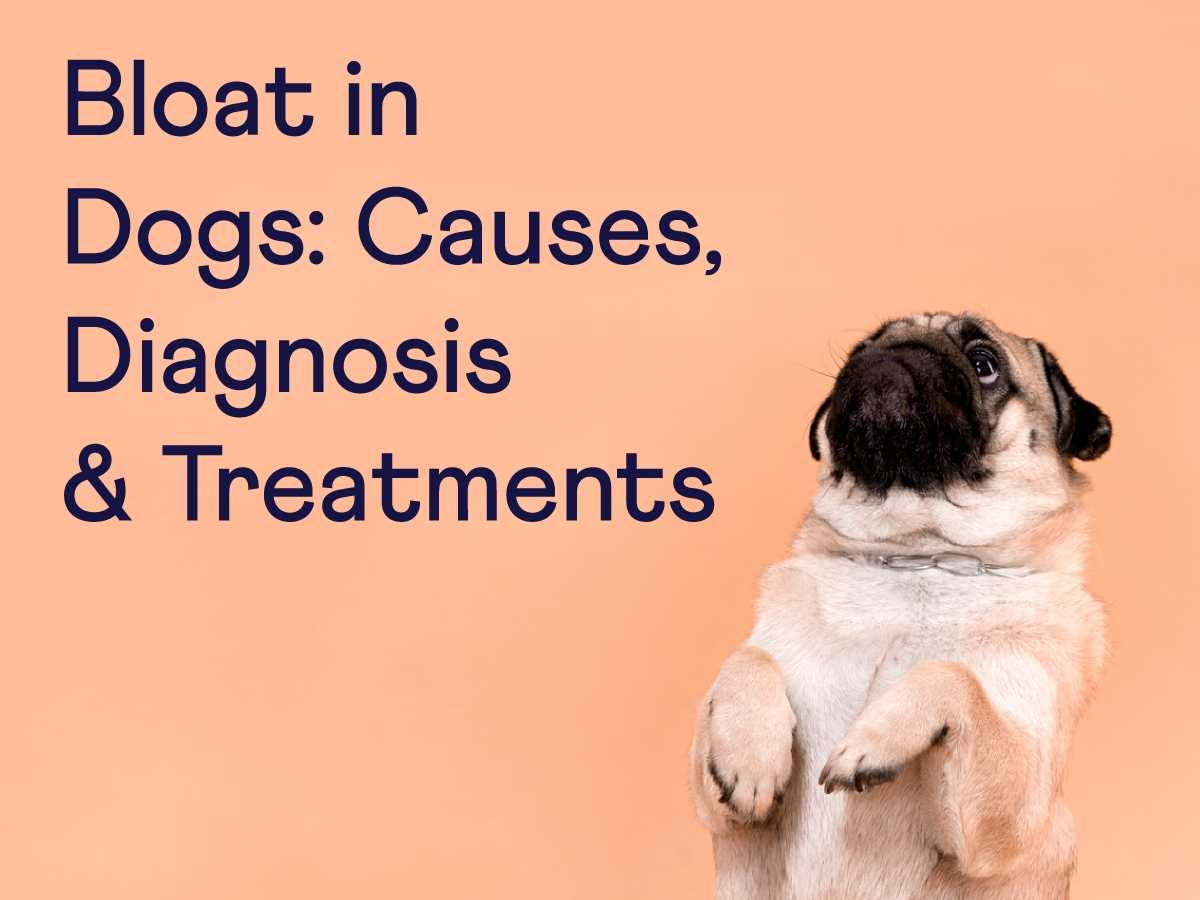
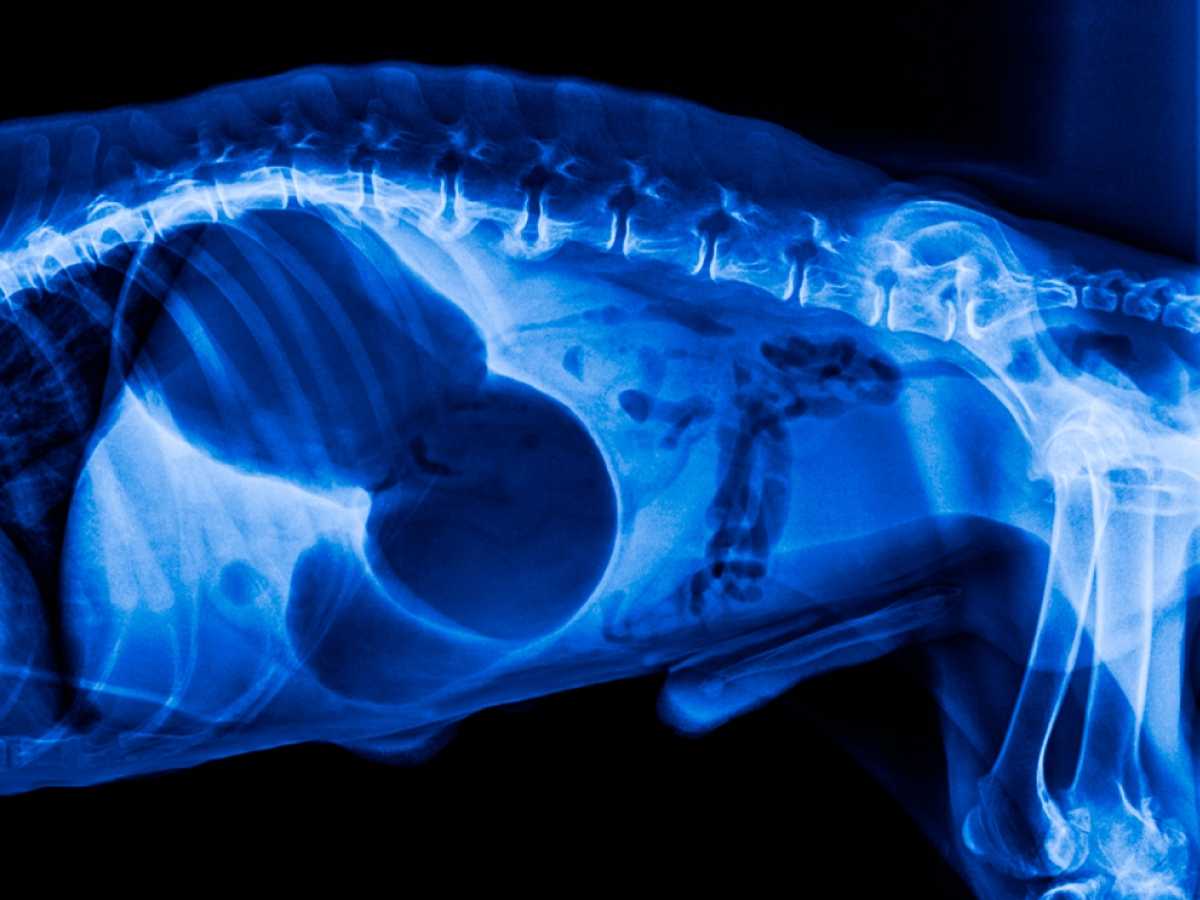
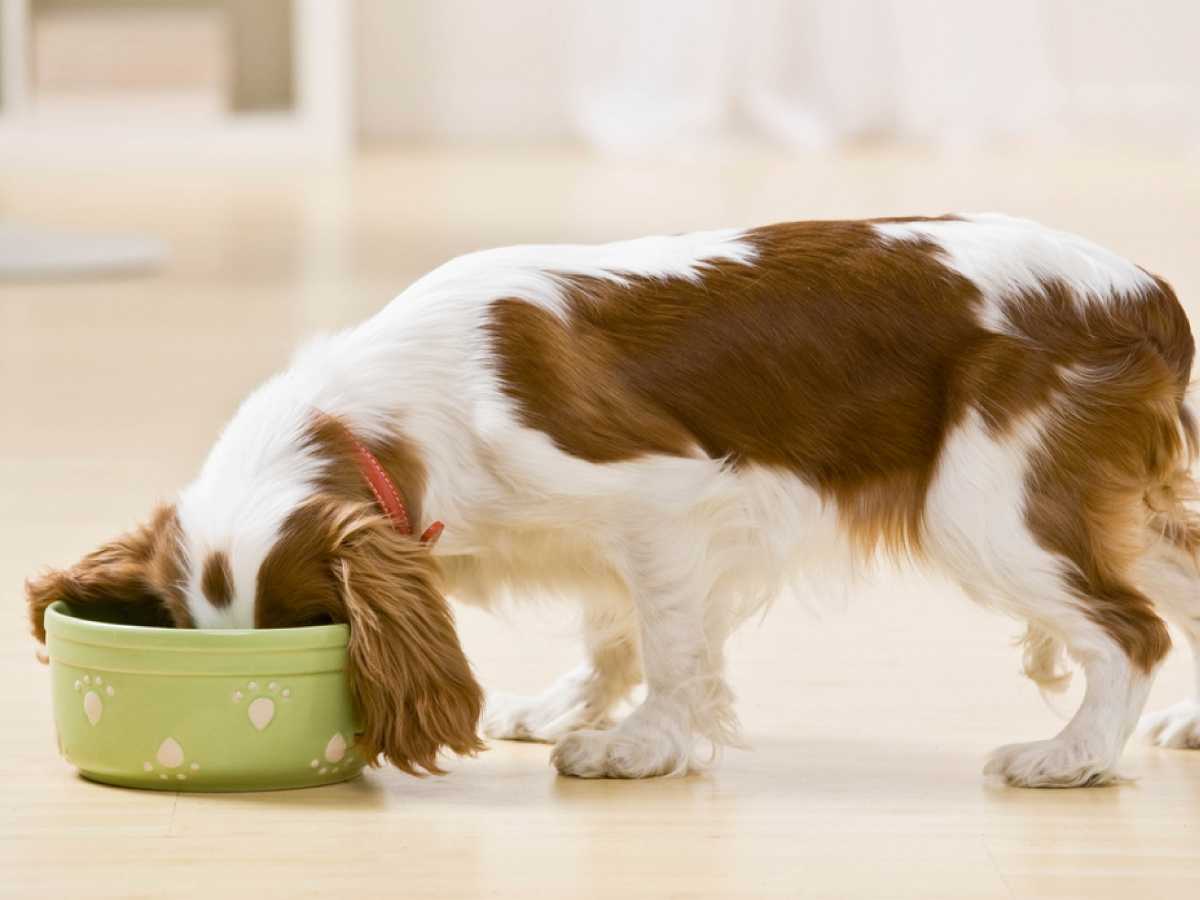
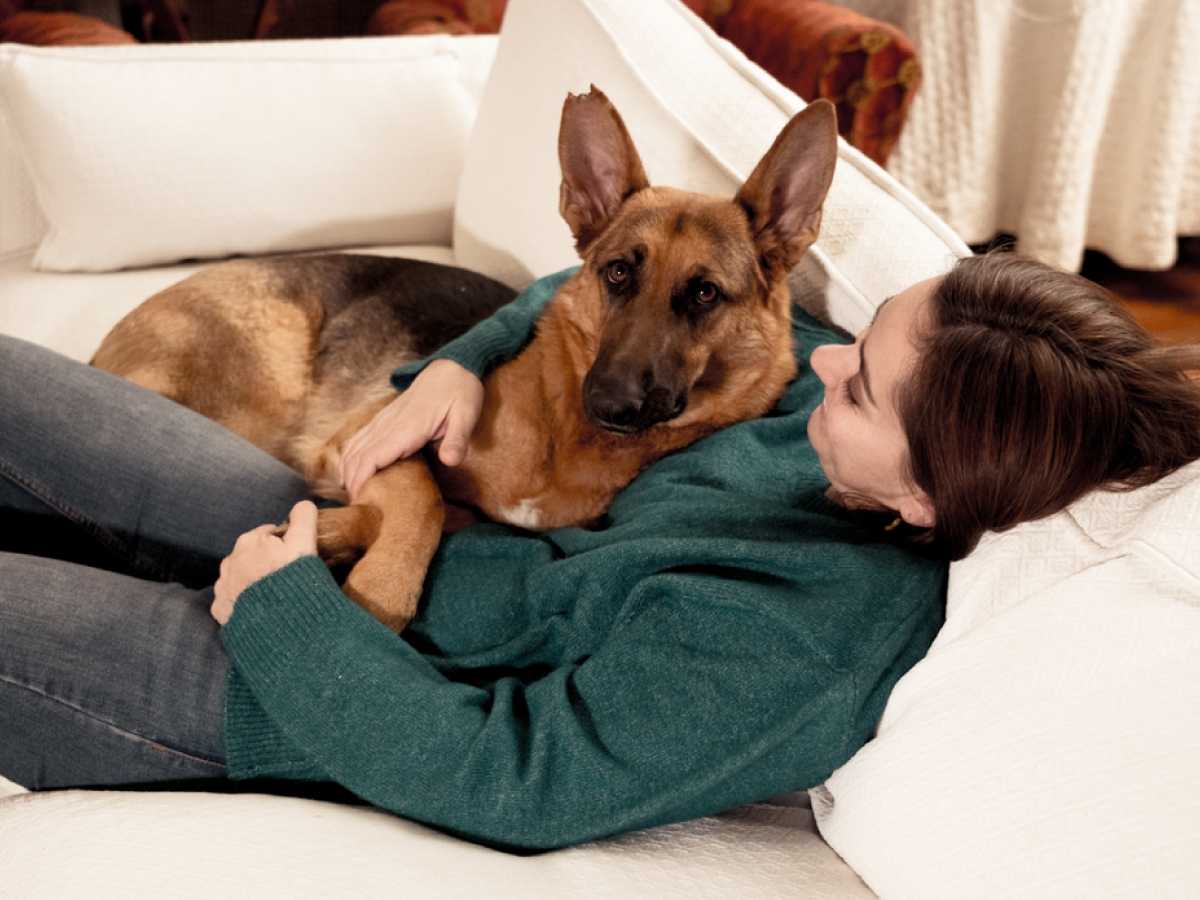
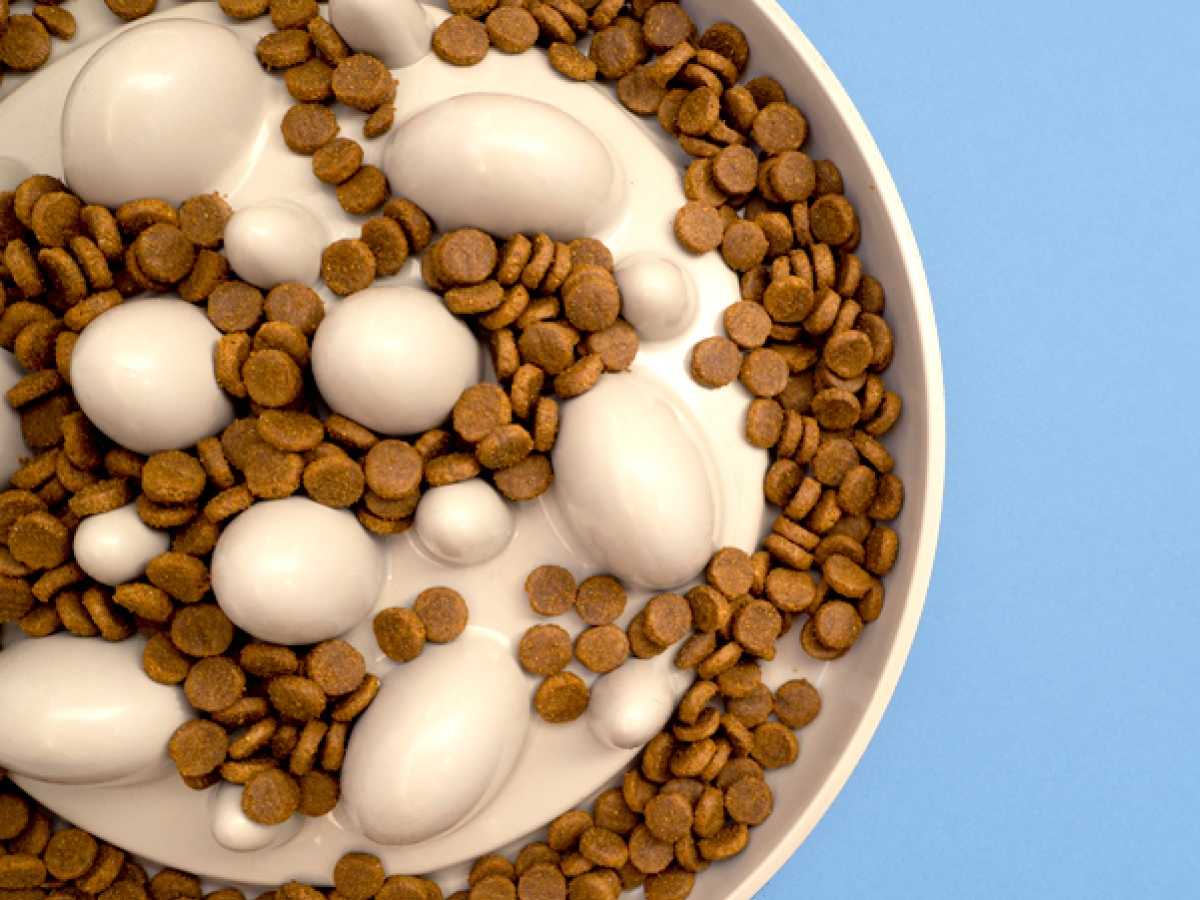

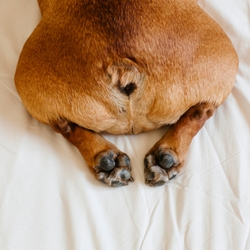


Comments: